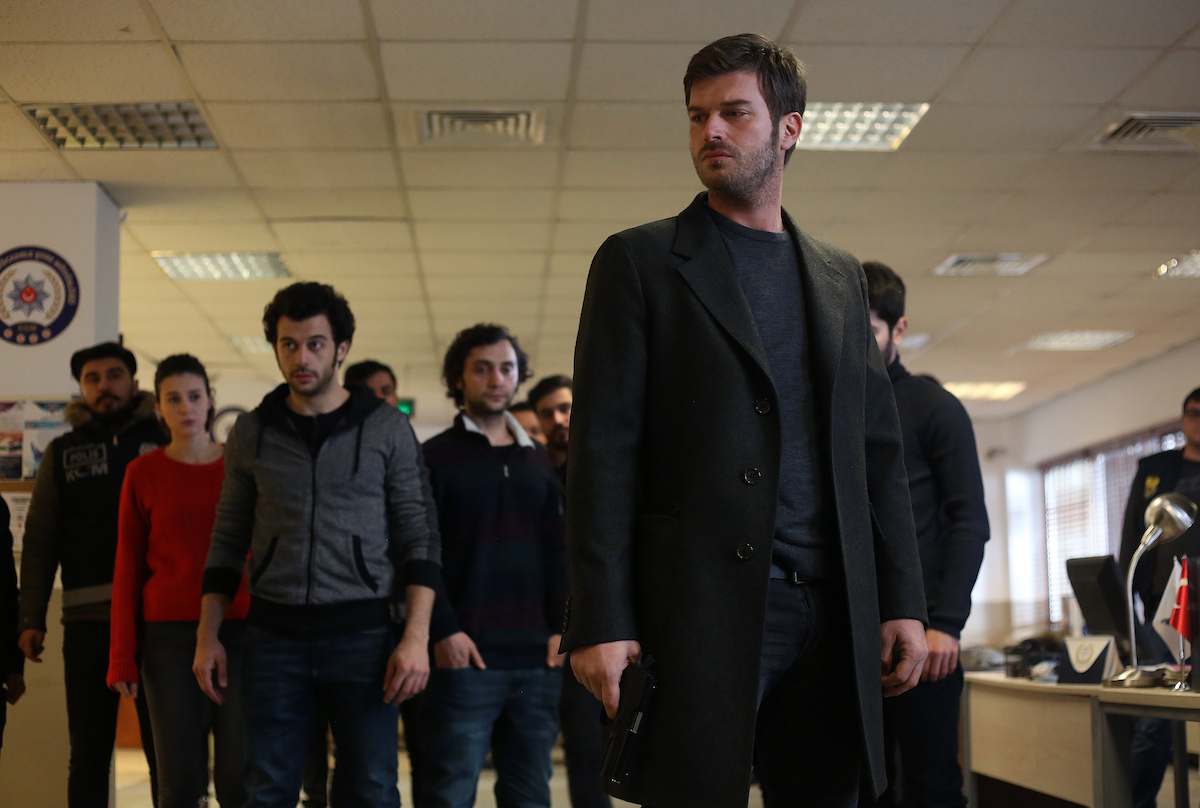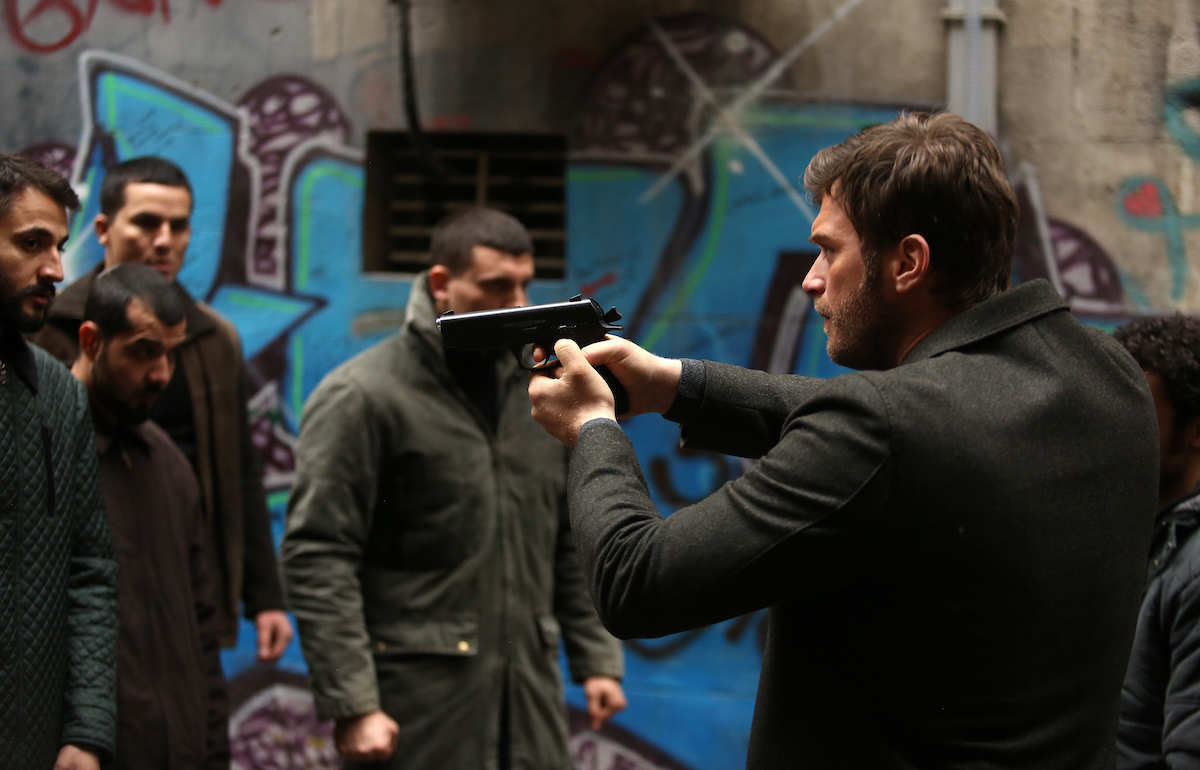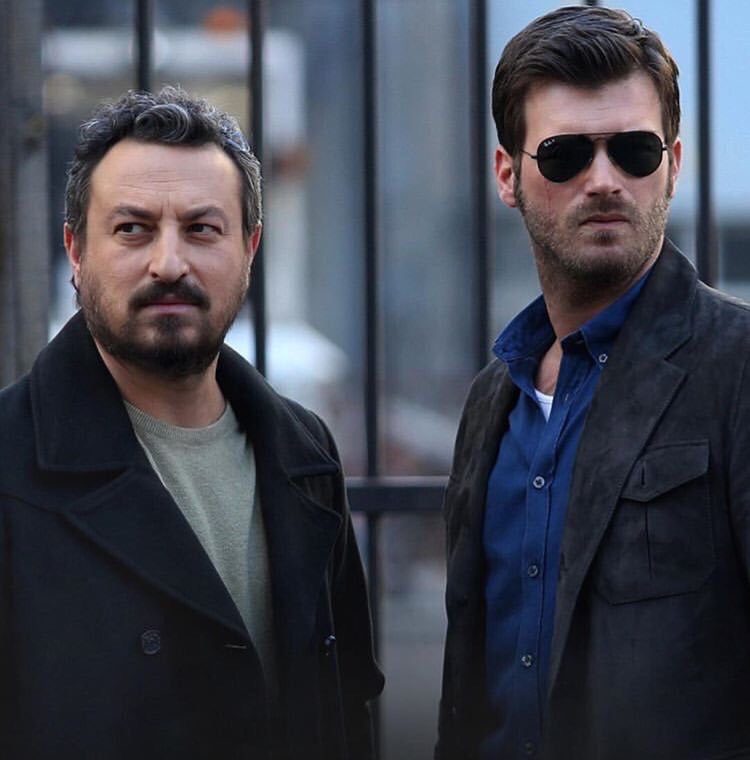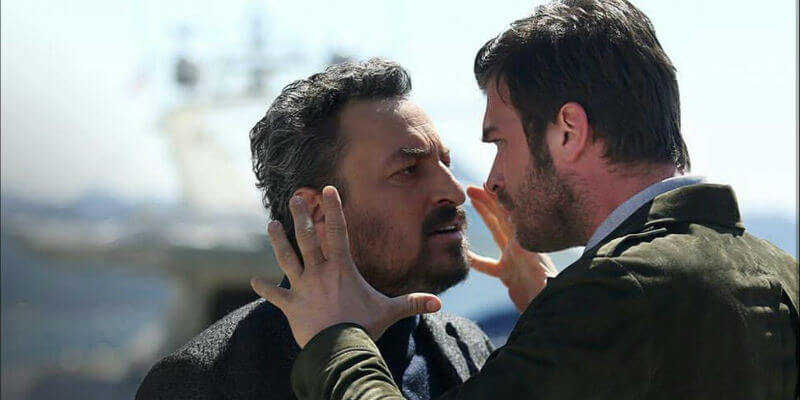By Anna Sirmoglu and Lara Hartman
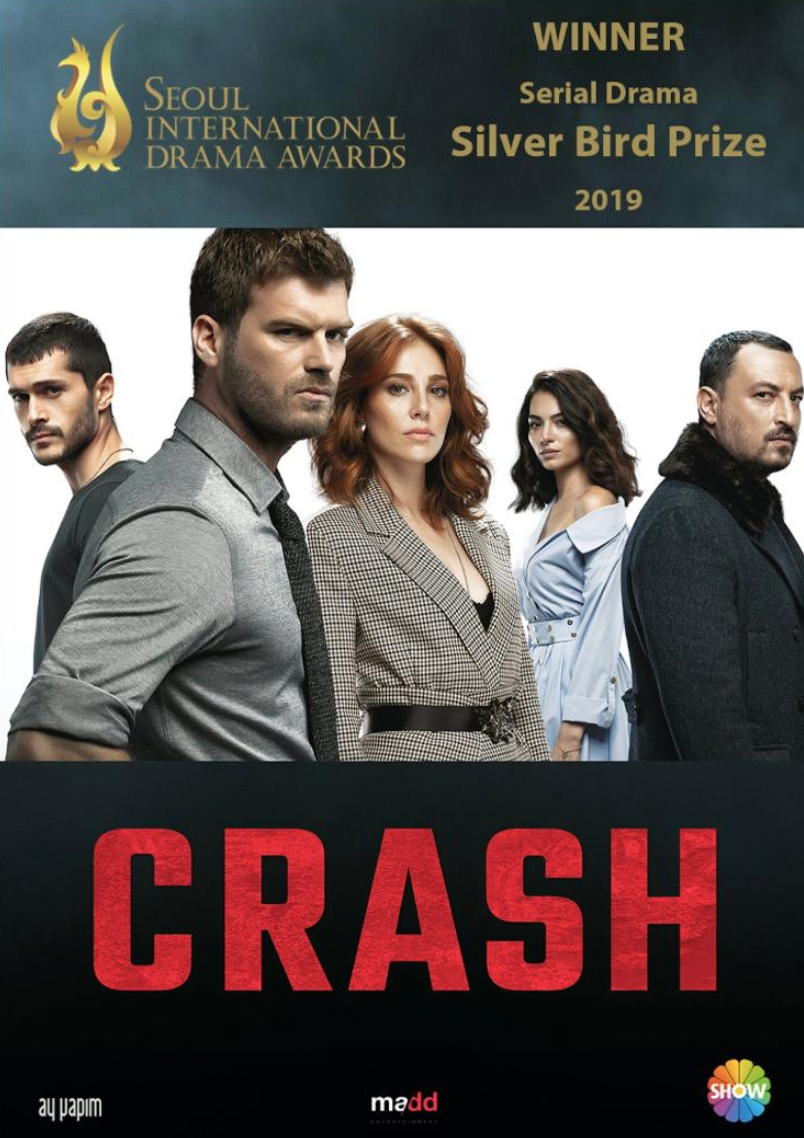
Kivanc Tatlitug’s most recent series, Carpisma (Crash) was awarded the Silver Bird Award for the Best Serial Drama at the 2019 Seoul International Drama Awards. Chalk another one up for Kivanc’s efforts! His other series such as Aski Memnu, Gumus and Kuzey Guney have not only been recognized by industry peers but by fans across the globe. Aski Memnu which originally aired in 2008 is still rebroadcast every summer to high ratings. But Carpisma is different. Besides the fact that it is one of the very few series that was actually slotted to last one season, Carpisma is a multilayered, complex show with depth and maturity.
One does not have to look very hard to see how absolutely fascinating the characters are, and that from the first episode there would be some very powerful themes running through this series. It’s one of those series that if you watch purely at the surface level you will miss much. Carpisma is not an easy watch because it does not offer escapism. There is a hum of intensity and realness to this story .
On its face Carpisma seems to be another crime drama genre series but in actuality it is real and raw. In the way that emotions and relationships are. And it brilliantly conveys this rawness and complexity in every scene. Of course, just like every dizi or show of its genre, many unrealistic things happen – people survive when they wouldn’t ordinarily, the bad guys are extremely powerful and well-resourced… but in the intrinsic sense, Carpisma is more real than many other shows of its genre.
The beauty of Carpisma is in how the themes unfold, how the characters and relationships develop and how emotions are conveyed. There is a rare character consistency in Carpisma which is emblematic of the series. The show is symbolic and the characters are vessels that serve a purpose and help to unfold key messages and themes. For many die hard fans of the series, this is only fully understood after watching the final episode. Without going into too much details about the ending, suffice it to say that watching the show superficially, one can come away asking, “Why is life so unjust?” But seeing it through the writer’s prism helps to ease that pain somewhat.
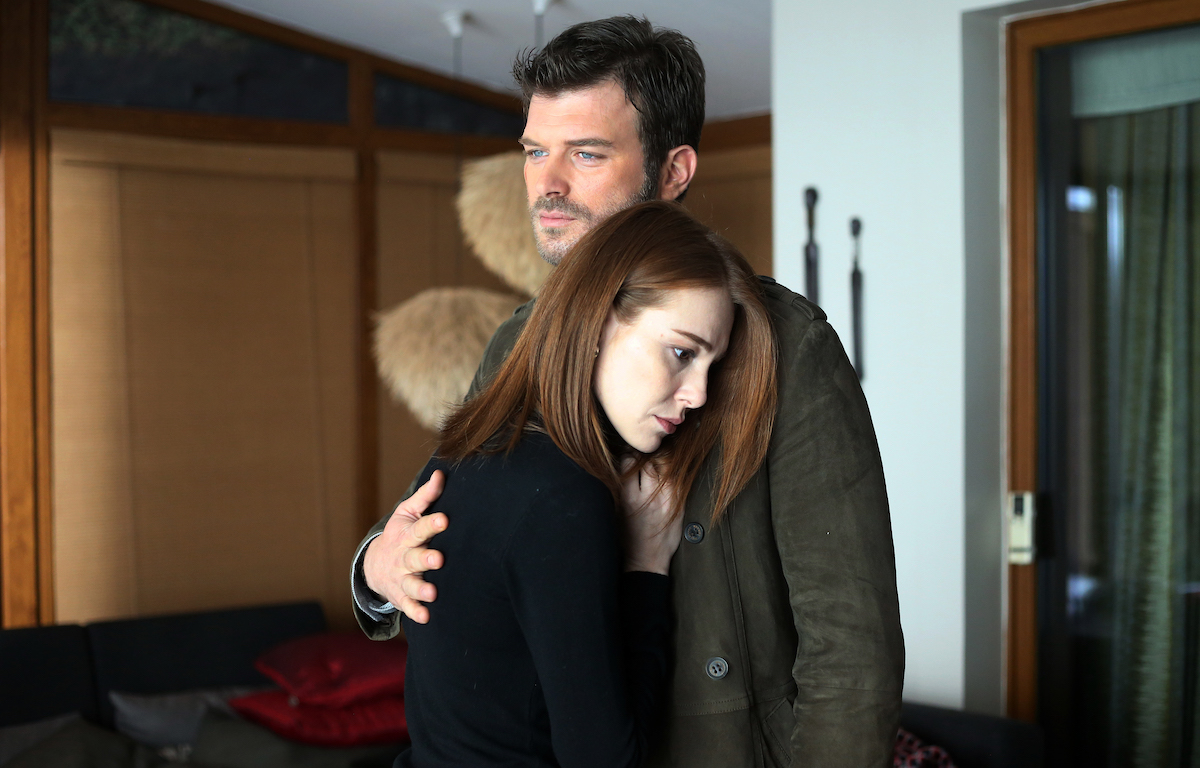
Carpisma is not a love story and it’s not a police drama. Yes, there is a beautiful love story (or two) in the show, and yes, genre wise it is a crime action drama. But all of that is a cover for its real themes of which there are many.
The healing power of love. The love between Zeynep and Kadir, Veli and Aylin, Cemre and Kerem, Kadir and his mother, Kadir and Aylin. It’s about all types of love, all forms of relationships. It’s about the transformative power of love, forgiveness and second chances. The show’s beautiful observation that love, compassion and forgiveness can transform people and make them better – we all deserve a second chance.
The complexity of the human psyche. Human beings are complex. None of us is black and white in our psyche. This was communicated in the first two minutes of the series premiere. Kadir’s resonant voice tells us “we can be angels or devils, victims or executioners, naive or cunning.” And most certainly the majority of the show’s characters are complex and full of depth and are faced with such dilemmas.
The essence of life. People come and people go. NOTHING is permanent but these people leave experiences and memories. Some hurt you, some help you grow and others may push you to your lowest levels. But life keeps moving on whether they are present or absent. The show urges us to embrace all these experiences, good or bad, keep the good ones in our heart, learn from the bad ones. Or as Kadir would say “get up on your feet” and carry on. There is always something in life worth living for. There are always new experiences that can give you joy and fulfillment. This is an intuitive message, but not often portrayed in today’s Hollywood, or even in Turkish dizis.
Live life to its fullest. With full abandon. Without fear. Listen to your heart and take risks, because as Kadir said in the first two minutes of the series premiere, “you never know where the matter starts or where it will end”. Tell people if you miss them, tell them how you feel, write them that letter (like the one that Kadir never managed to write to his daughter), tell them if you feel hurt and what they mean to you, express every feeling because these are moments that you can’t relive. Don’t let fear stand in your way and end in accumulated regrets. Go for it! Cherish every moment! You never know the value of what you have today until it is gone… Zeynep left Kadir out of fear … she regretted that and decided to not have fear anymore … but it was too late … in a scene with her younger self Zeynep says: “Go to Kadir, and never leave him alone. And Zeyno, don’t be afraid, ok”?
The sins of our fathers. Finally, Carpisma touches on wider societal/political messages as well …. the sins of our fathers. This theme was repeated very often throughout the show. In one of the final scenes, Zeynep says, “All the children of this country are injured by the father.”…. But there is hope in the youth…another key theme throughout the show, very well articulated by Kadir in the last episode, “A little girl means hope. Watching her grow up is like watching spring. When you look at a little girl, you see the beauty that she will bring to the world when she grows up. Like my Zeyno in the orphanage. Like my daughter Deniz. Like Aylin. My duty is to save Aylin. What does it matter if Kadir Adali is in this world or not? But Aylin – everyone needs her to grow up and to bloom. She is our hope”.
And now on to Kivanc and his portrayal of Kadir Adali- probably one of Kivanc’s best characters to date. He is such a tragic figure (given all that he has been through) but he remains such a positive force, and hopeful too. A survivor despite all adversities; intelligent; tenacious; brave; determined; resilient; compassionate; giving; forgiving; loving. Yes, temperamental too, not very eloquent and hard headed at times but he is nearly always right and this all adds to the charm. One believes that in spite of all that has happened to him, Kadir will rise above this challenge and his heart will always be full of love … always.
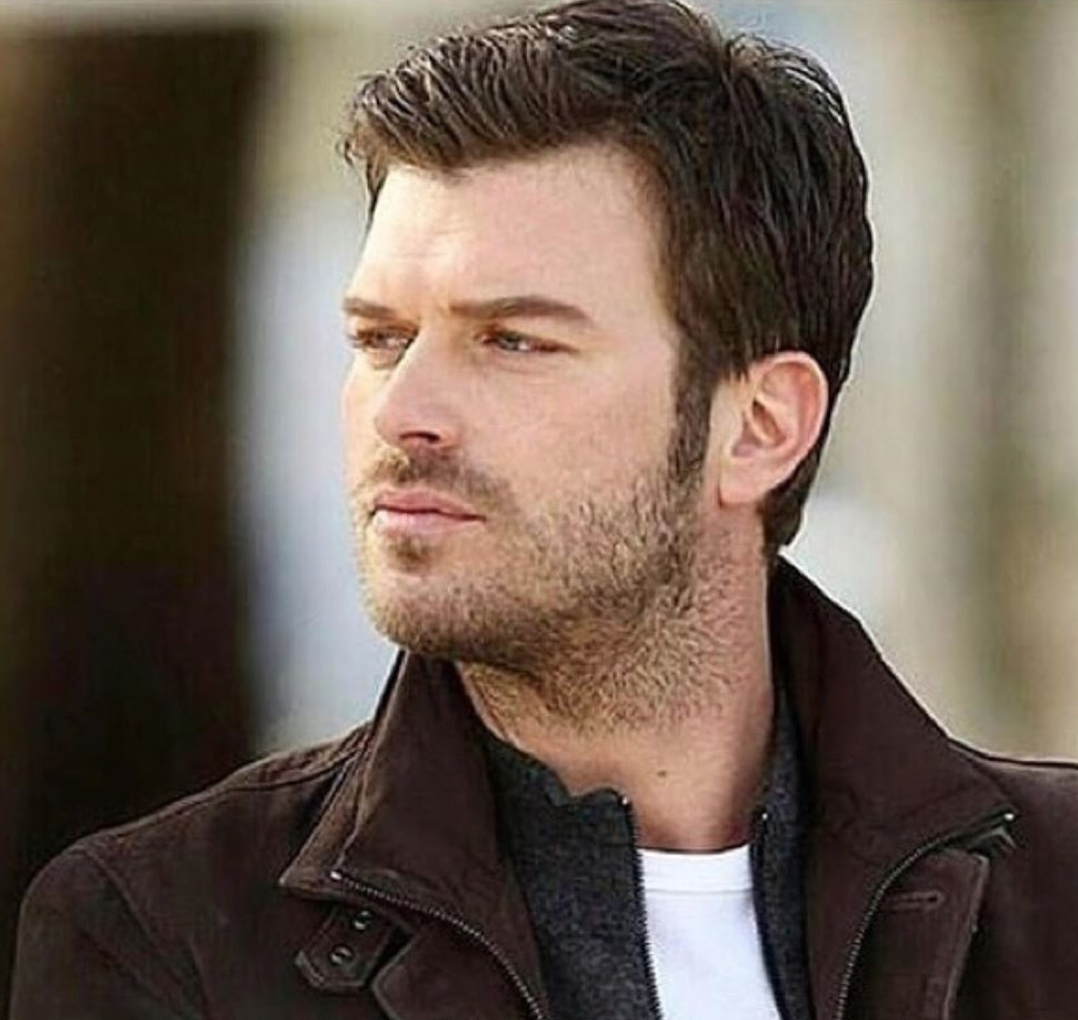
As for Kivanc’s performance as Kadir Adali, it can only be described as powerful… superb … phenomenal. Some might even say it is possibly his best performance to-date. In typical Kivanc fashion, he morphs into the character of Kadir Adali and with every shift of his gaze, he shows us Kadir’s inner world. Kivanc has said that he chooses scripts based on a storyline that “means something” to him. It is clear why he chose Carpisma and Kadir Adali. It’s the beauty behind the mirror and not what you see on the surface. On the surface he is disheveled and mumbling, but behind the mirror shines a jewel. A kind, merciful, brave heart. Just like the series: on the surface the show seems to exude violence and inhumanity, but behind the mirror you find life in all its beautiful and bittersweet splendor. *Judge for yourself in the selected clips through out this article.
There are so many memorable characters and scenes from the series that it would be unwieldy to discuss them all. But here are some that might whet your appetite to taste more.
Zeynep and Kadir’s relationship – Kivanc Tatlitug has that rare quality of eliciting chemistry from every romantic pairing. His chemistry with each romantic lead has been different and powerful in its own way. But the chemistry between Zeynep (brilliantly played by Elcin Sangu) and Kadir is beyond all others. It is heartwarming. It is the love of soulmates. It is deep, full of knowledge, and understanding. It is on a wholly different level than all the others and one that is as close to real life as possible. The only true criticism of the show is that there were not enough scenes between Zeynep and Kadir.
Veli and Kadir’s relationship – Chemistry can take many forms. Between lovers, or between friends. Veli and Kadir have chemistry as adversaries. Great chemistry. It helps that Onur Saylak is an incredible actor and that Veli is a compelling character. Each of their scenes leaves you breathless and excited for more. You might find yourself concerned about what awaits these two strong, willful men, even more than you expect.
We will leave the ending for you to come to grips with after you watch the series, but suffice it to say that the ending was perfectly appropriate for the theme. Kadir as the main character was the messenger with the following message: Whatever happens to you, however unlucky you may be in life, there is always hope, there is always a light somewhere, life will carry on, you will still manage to “get on your feet”.
Carpisma’s writer Ali Aydin, and the directing team led by Uluc Bayraktar, brilliantly used Hollywood style violence as a vehicle by which to convey the real messages and themes of the complexity of human emotions, human actions, human frailties, and those very attributes that Kadir spoke of in the first episode related to the dual nature of humankind. Through Kadir, Veli, Cansiz and the countless other complex characters in the series, the creators remind us that we as human beings are on the edge of a knife. All of us have the capability to slip on either side of it. We can be angels or devils….betrayers or the betrayed. None of us is immune because we are all humans. To think otherwise is unrealistic.
But while most Hollywood dramas would have left us wallowing in this despair, the creators of Carpisma showed us how to live. Through rich dialogue, cinematic devices and character development, they convey that it is up to each of us to decide whether we choose life or death; or surround ourselves with good people or the dregs of humanity; or whether we can accept the good and the bad and still preserve our humanity; or whether we are guided by fear and cowardice or by boldness and bravery in the face of uncertainty. But more importantly the creators of the series show us that even when all is lost, even when you don’t have the strength to open your eyes, there is hope.
We give Carpisma 10 stars.
*All photographs and video clips belong to their original owners. No copyright infringement is intended.
@Copyright by North America TEN
